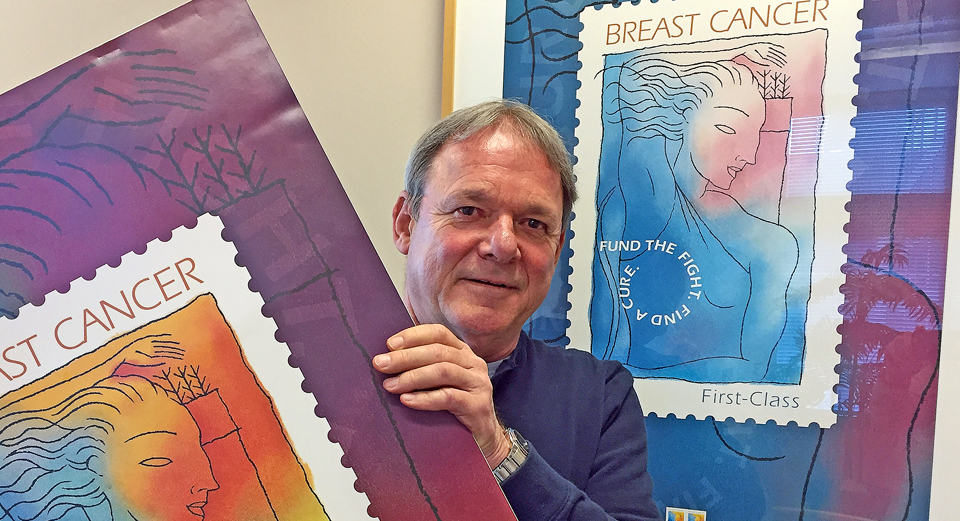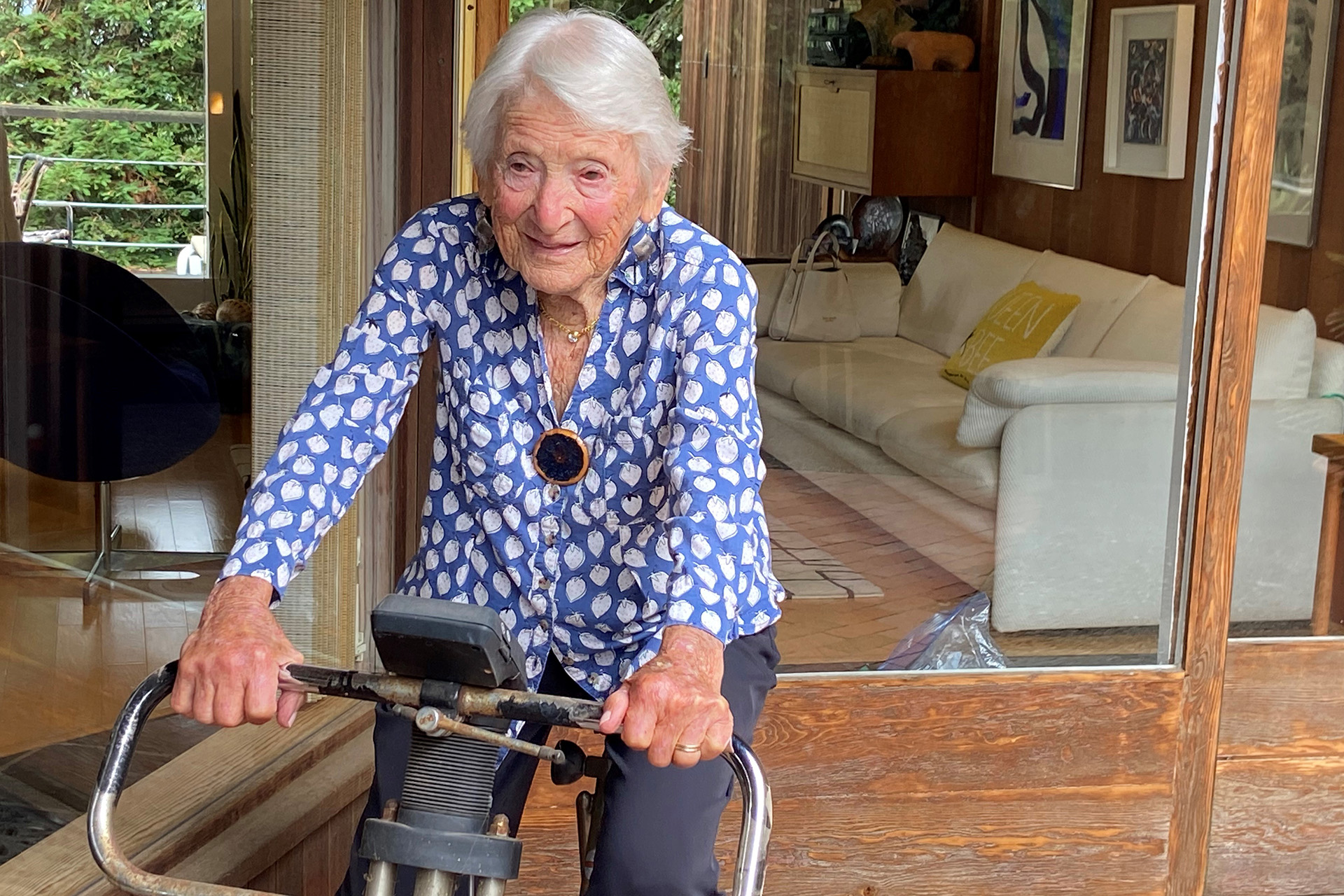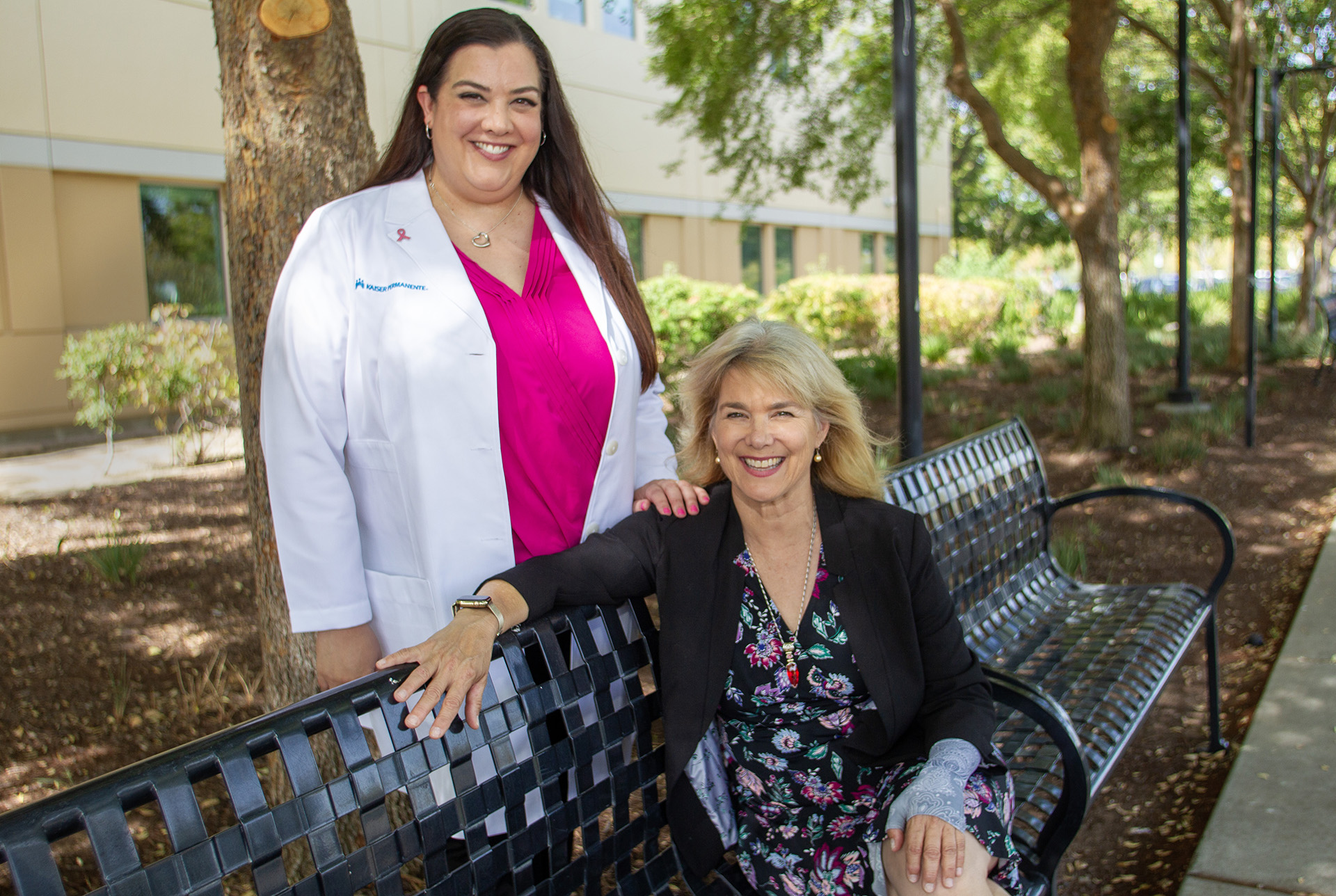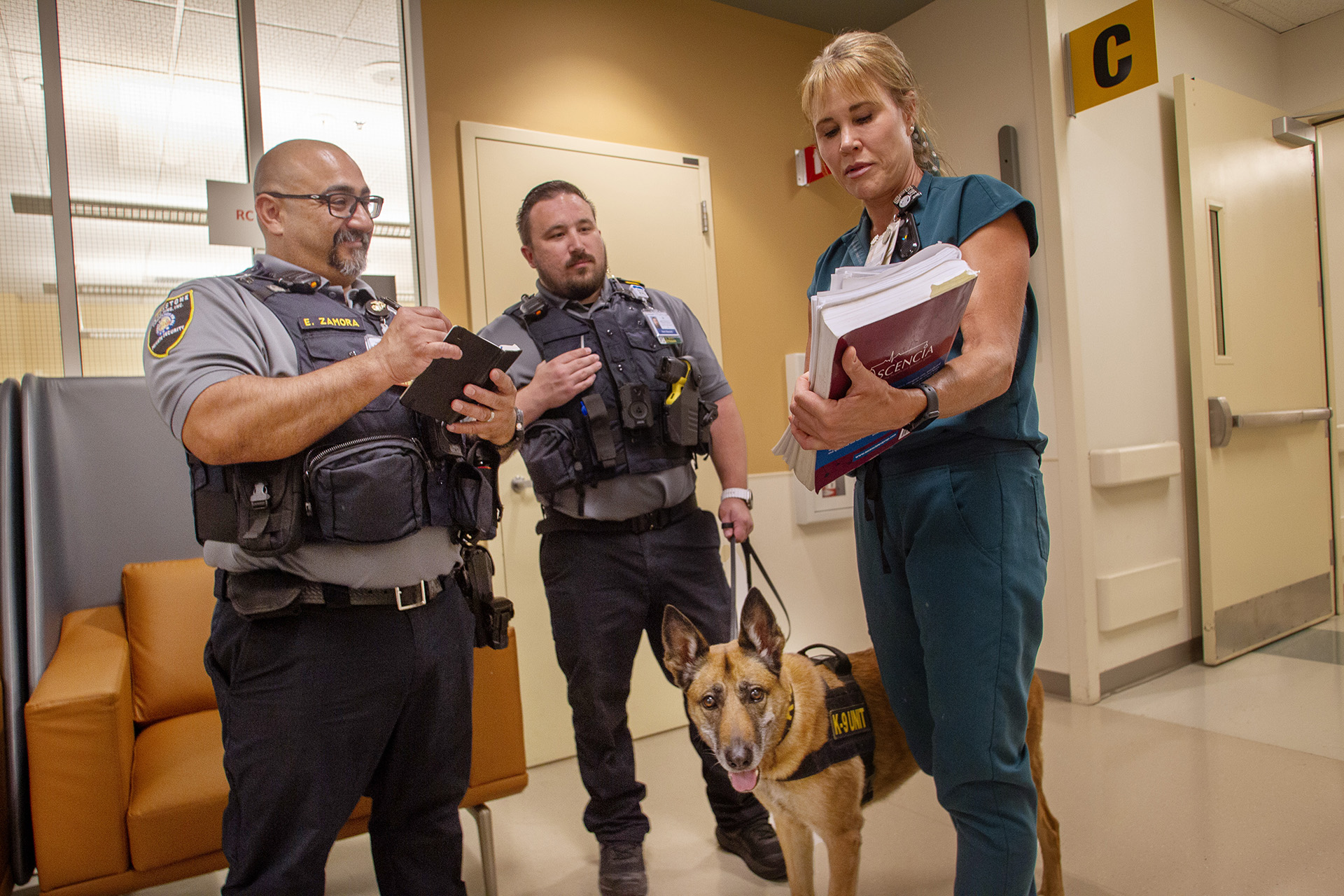The effort to raise money for breast cancer research reached a major milestone in December 2015 with the sale of the 1 billionth breast cancer research stamp, devised by Kaiser Permanente physician Ernie Bodai, MD.
As a breast cancer surgeon at Kaiser Permanente Sacramento for more than 30 years, Ernie Bodai, MD, had successfully treated thousands of women. But he was frustrated by the slow pace of progress in battling the disease.
In spite of medical advances, he knew that one in eight U.S. women would develop breast cancer over the course of their lives — and that breast cancer was the second deadliest cancer American women faced.
An idea came to him as he flipped through art books one night looking for ancient depictions of women with breast cancer for a lecture: The U.S. Postal Service (USPS) could issue a breast cancer research stamp that was priced slightly higher than other first-class stamps. The money raised from its sales would support breast cancer research.
Two years and many letters and visits to Congress later, Dr. Bodai’s vision became a reality. The USPS issued the breast cancer research stamp, its first fundraising stamp, in 1998.
The Little Stamp That Could
“Nobody thought it would sell,” recalled Dr. Bodai. “The initial print run was just 10 million stamps. But each time they ran out, the postal service would print more stamps.”
Since then, Congress has reauthorized production of the stamp several times. And in December 2015, a major milestone was reached: The 1 billionth stamp was sold.
Currently priced at 60 cents, just 11 cents over the regular postal rate, the stamp is a fundraising dynamo. It’s generated nearly $82 million for breast cancer research at the National Institutes of Health and the Medical Research Program at the Department of Defense.
Programs supported by the funds include the development of breast tomosynthesis, a technology that uses X-rays to create a three-dimensional image of the breast for better screening, and the trial of a genetic-testing technology that successfully identified women with early-stage breast cancer who might respond to hormonal therapy without chemotherapy.
“That’s important because it has the potential to spare women who fit certain criteria from having to undergo chemotherapy,” said Dr. Bodai.
A Focus on Survivors
Dr. Bodai’s commitment to breast health has been a constant throughout his career. In 1998, he helped establish Sacramento’s Breast Health Center, the first nearly comprehensive breast cancer center within Kaiser Permanente Northern California.
“Now nearly every Kaiser Permanente in Northern California has a dedicated breast cancer center,” he said.
More recently, after deciding to give up surgery, Dr. Bodai helped launch Sacramento’s Breast Cancer Survivorship Institute.
“I see women after they’re done with their surgery and chemotherapy and radiation therapy, when they’re still in a kind of daze,” he said. “I review the treatment they’ve received and the long-term side effects they may experience. I also talk with them about lifestyle changes they can make to decrease the chance of recurrence and give them a plan for surveillance.”
Dr. Bodai’s latest mission is the globalization of the breast cancer stamp.
“It’s already in 23 countries, and we hope to bring it to many more,” he said. “We’re starting on the effort to sell the second billion stamps.”





This Post Has 2 Comments
Imagine if Dr. Bodai had never taken the iniative to raise money for breast cancer! The National Institutes of Health and the Medical Research Program at the Department of Defense would not have received $82 million. It just takes one person to make a difference.
Awesome!
Great inspirational story! What a world-wide impact from Dr. Ernie Bodai’s vision 25 years ago! It is also humbling knowing how each one of us can make a difference in making this world a better place, if we really wanted to. Congratulations, Dr. Bodai, as you celebrate the fruits of your labor toward the cause of breast cancer!